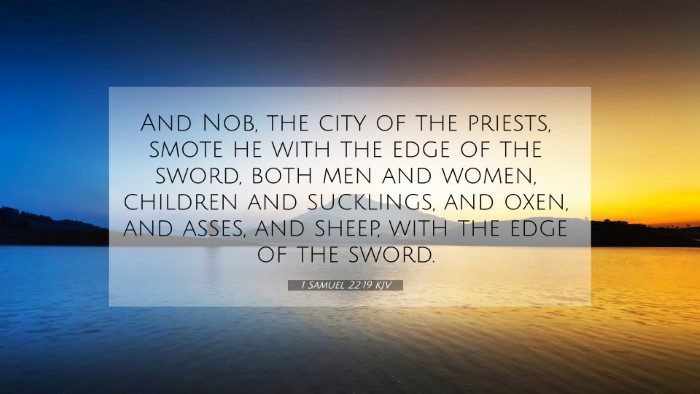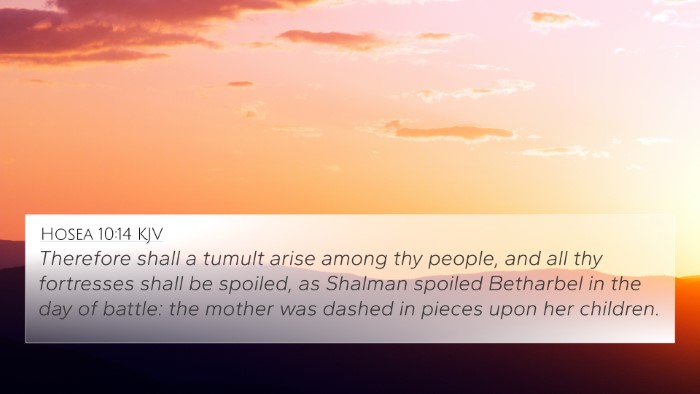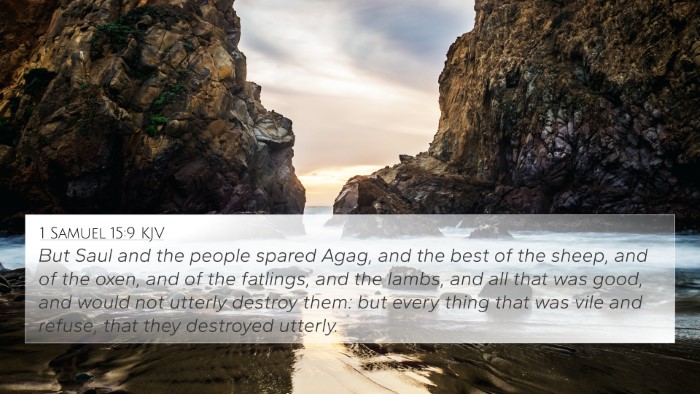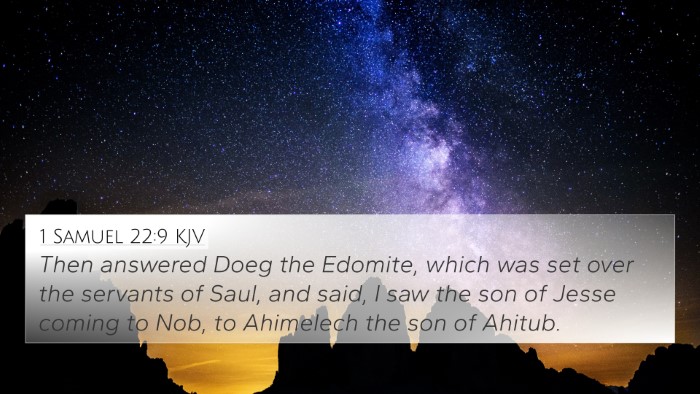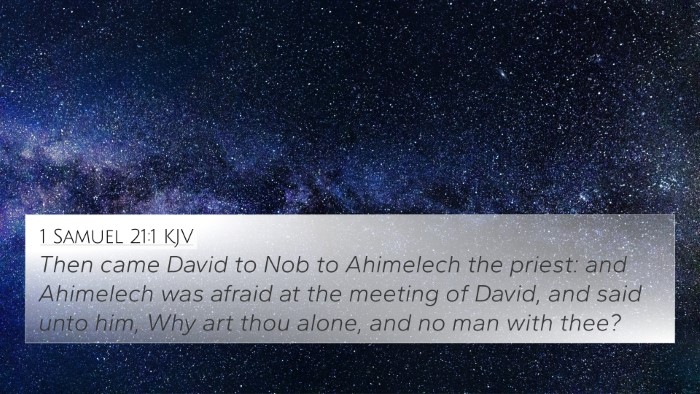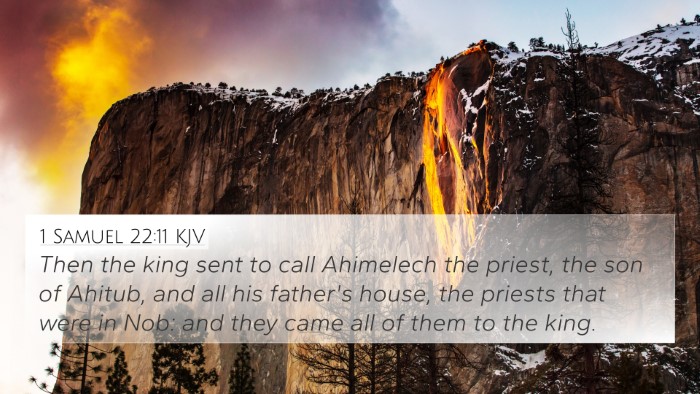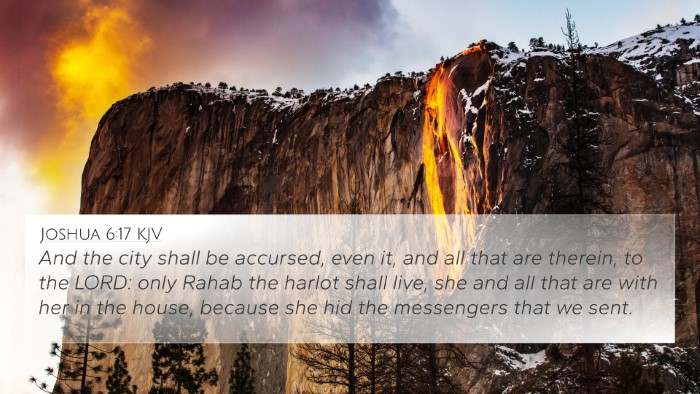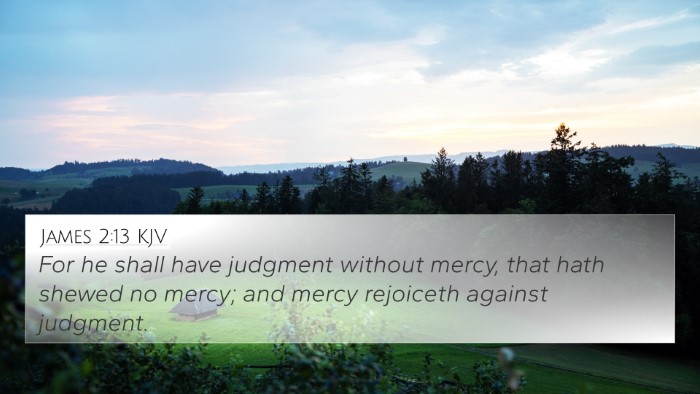Understanding 1 Samuel 22:19
Verse: "And Nob, the city of the priests, smote he with the edge of the sword, both men and women, children and sucklings, and oxen, and asses, and sheep, with the edge of the sword." (1 Samuel 22:19)
Summary of 1 Samuel 22:19
This verse recounts a horrific event where Saul's soldiers attacked Nob, the city of the priests, killing everyone and everything in the city. This act of violence demonstrates the extreme measures Saul took in his pursuit of David and his paranoia about those who might aid him.
Key Themes and Insights
- The Consequences of Pursuing Power: Saul’s relentless pursuit of David led to tragic consequences, not only for himself but also for innocent people.
- Corruption of Authority: Saul, who once was a chosen leader of Israel, misused his authority, leading to bloodshed and suffering.
- The Sanctity of Life: This passage invites reflection on the sanctity of life and the seriousness of violence, especially against innocents.
Commentary Insights
Matthew Henry: Henry points out that this was a direct consequence of Saul's jealousy toward David. He illustrates how Saul's fear caused him to act irrationally, leading to devastating effects on those around him.
Albert Barnes: Barnes emphasizes the moral implications of Saul's actions, highlighting the indiscriminate violence and how it paints a grim picture of his deteriorating leadership.
Adam Clarke: Clarke notes the fulfillment of God's words regarding the consequences of ignoring the divine directive. Saul’s actions directly contradict the justice expected from a king of Israel.
Related Bible Verses
- 1 Samuel 15:3: God's command to Saul to destroy the Amalekites, illustrating the consequences of disobedience.
- 1 Samuel 16:14: The departure of the Spirit of the Lord from Saul, marking his decline.
- 1 Samuel 21:1-9: David's interaction with Ahimelech the priest at Nob, highlighting the theme of refuge and betrayal.
- Matthew 5:21-22: Jesus teachings on murder and anger, connecting moral implications across Testaments.
- Jeremiah 51:35: A lamentation of violence and betrayal, demonstrating the broader theme of destruction in Biblical history.
- Luke 11:49: Jesus speaks of God sending prophets and wise men, foreshadowing the consequences of rejecting His messengers.
- Acts 7:51-53: Stephen's recounting of Israel's history of violence against God’s messengers, linking to the theme of persecution.
Comparative Bible Verse Analysis
This passage can be linked to various themes observed in both Old and New Testaments. The unjust violence seen here echoes in the teachings of Jesus about the heart condition leading to sin.
How to Use Cross-References for Deeper Understanding
To fully grasp the implications of 1 Samuel 22:19, one can utilize tools for Bible cross-referencing. Exploring these connections helps illuminate the ongoing dialogues within Scripture regarding leadership, justice, and morality.
Implement methods such as comparing parallel narratives, exploring thematic ties, and contrasting characters such as Saul and David to gain a richer understanding of God’s message throughout the Bible.
Conclusion
1 Samuel 22:19 serves as a stark reminder of the dangers of jealousy and the abuse of power. By studying this verse and its cross-references, one can appreciate the depth of God's Word and the moral lessons it imparts. The consequences of Saul’s actions provide a lens through which to view the righteousness expected from God’s chosen leaders.
Further Study Recommendations
- Examine the context of Saul's leadership decisions throughout 1 Samuel.
- Explore the connections between Saul's actions and the roles of prophets during this turbulent time.
- Utilize a Bible concordance to find verses addressing leadership, morality, and justice.
- Engage in cross-reference Bible studies to observe how themes evolve across different scriptures.


